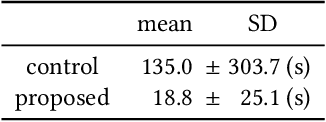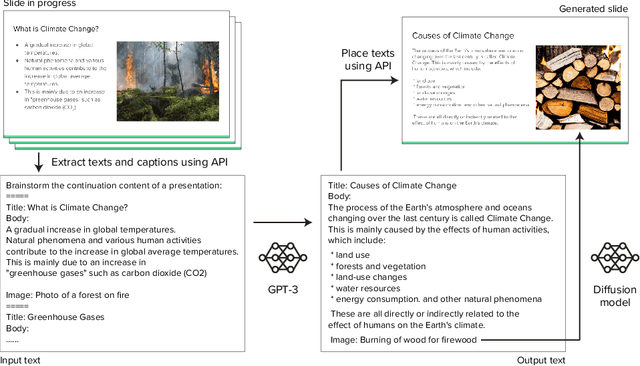CatAlyst: Domain-Extensible Intervention for Preventing Task Procrastination Using Large Generative Models
Paper and Code
Feb 11, 2023



CatAlyst uses generative models to help workers' progress by influencing their task engagement instead of directly contributing to their task outputs. It prompts distracted workers to resume their tasks by generating a continuation of their work and presenting it as an intervention that is more context-aware than conventional (predetermined) feedback. The prompt can function by drawing their interest and lowering the hurdle for resumption even when the generated continuation is insufficient to substitute their work, while recent human-AI collaboration research aiming at work substitution depends on a stable high accuracy. This frees CatAlyst from domain-specific model-tuning and makes it applicable to various tasks. Our studies involving writing and slide-editing tasks demonstrated CatAlyst's effectiveness in helping workers swiftly resume tasks with a lowered cognitive load. The results suggest a new form of human-AI collaboration where large generative models publicly available but imperfect for each individual domain can contribute to workers' digital well-being.
 Add to Chrome
Add to Chrome Add to Firefox
Add to Firefox Add to Edge
Add to Edge